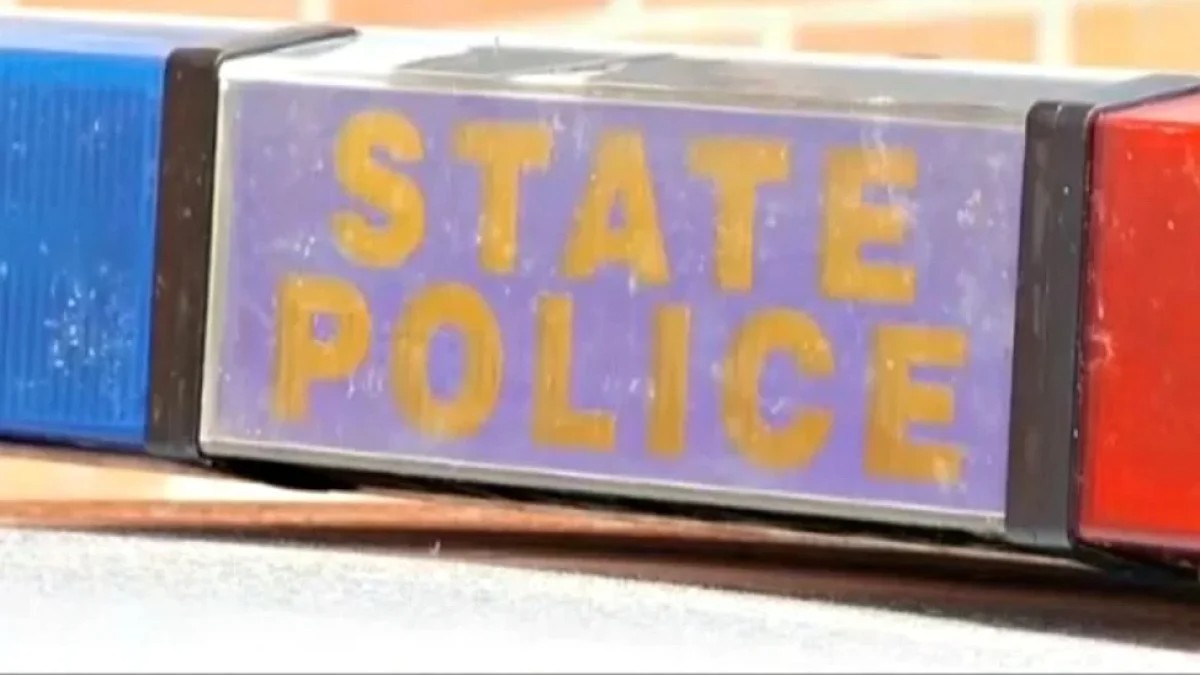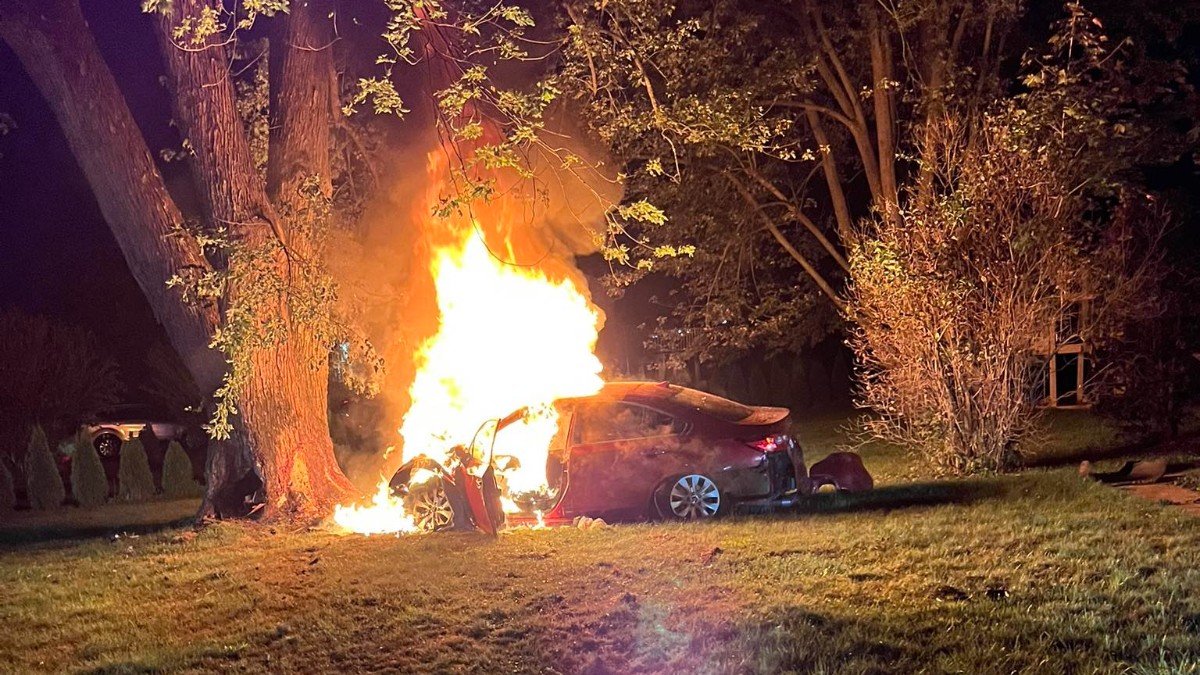Connecticut
Mr. Connecticut Leather 2023 was ‘fantastic’ ambassador for LGBTQ community

Trell Walters is more than just a guy who looks hot in leather.
Walters holds the title, Mr. Connecticut Leather 2023, a contest linked to unconventional sex and to the LGBTQ community.
But holding the title is about more than a fetish because it comes with a platform and sash, the latter like a “microphone” to Walters.
Walters’ platform has been “No one left behind,” as he spent the year of his reign creating safe spaces for LBGTQ people – many of them young adults – to hold conversations, seek advice and everyday education in a world that’s not always accepting.
For the greater community, he’s also held a canned food drive for a soup kitchen, personal care item collection for people experiencing homelessness, and a soup kitchen fundraiser.
He also is a Black man, which holds another element of representation, he said.
“I like being able to spread the word or positivity,” Walters said. “When you have a sash around you it amplifies you … like a microphone.”
Walters, 41, will pass his sash on Sept. 9 when Mr. CT Leather 2024 is chosen at 168 York St. Cafe in New Haven. Ian “Scooby” Rosman, producer of the event and Mr. CT Leather 2017, said Walters has been a “fantastic” title holder.
“The main thing is to be an ambassador for the leather community. To be a positive face for the fun and excitement we have here in our community,” Rosman said.
Rosman said the competition like others held nationwide at various levels, celebrates leather, kink, fetishes, and unconventional sex – all consensual and practiced in all kinds of sexual orientation relationships.
This year the contest will add a Ms. Connecticut Leather category. For more information on that contest, contact Rosman at ctleather2017@gmail.com.
Walters, 41, of Wallingford, works as a field support representative for FedEx Ground.
Walters has a large closet and drawers filled with all kinds of leather – boots, pants, shirts, vests, ties, and more. His leather attire is also in an array of colors.
Walters, who grew up in Windsor, fell in love with leather when he attended his first leather event in 2009.
He knew right away it would become a thing.
“I loved the way it felt. How it made me look. I felt empowered,” he said. “It gave me confidence.”
In July of 2018 it got even better after he had bariatric surgery and lost over 130 pounds.
“I can appreciate leather more now,” he said.
Walters said there are a lot of misconceptions out there about the topics celebrated by the contest.
While some consider it “deviant”, he said, all kinds of fetishes and sexual styles are common in the general population.
“They are all around us,” Walters said. “There’s nothing aggressive about this and the emphasis is in consent.”
Walters has won several titles over the years since 2014: Mr. CT Bear; North American Daddy Bear; Mr. Bear Bare it All; Atlantic States Leather Boy.
Following his Mr. CT Leather win in September 2022, Walters was first runner up at the Mid-Atlantic contest and was in the top 20 in the international contest held in Chicago.
Like other such pageants, Mr. CT Leather has visual and platform components.
In Walters’ contest the first category was Bar Ware, or what one would wear to a bar. The second category, “physique” involves less clothing, he said, like underwear or a swim suit, but they’re not looking for a best body, Walters said. It’s more to see “how comfortable you feel in your own skin.”
The third category, “formals” entailed wearing all leather and included a speech on why the contestant was running and what he would do for the community, Walters said.

Connecticut
Human remains found at construction site in Greenwich

Police are investigating after finding human remains at a construction site in Greenwich last week.
The police department said that during a normal workday at a construction site in northern Greenwich, workers found what appeared to be human remains after soil was disturbed by an excavator.
The remains were carefully collected from the scene, and the Office of the Chief Medical Examiner took custody of the bones, police said.
Investigators said the remains appear to be of a considerable age.
Connecticut State Police is also assisting with the investigation.
Connecticut
A motorcyclist in Hebron is dead following crash

A motorcyclist in Hebron has died after a crash along Burnt Hill Road and Cone Road, state police said.
The Connecticut State Police responded to the accident at approximately 5:25 p.m. after a dirt bike struck a rocky embankment.
According to authorities, the operator of the motorcycle failed to negotiate an “S” shaped curves in the roadway before loosing control.
The victim was originally transported via LifeStar to the hospital with reported serious injuries, authorities said.
The driver was then later pronounced dead at Marlborough Middlesex Clinic, state police said.
Anyone who may have witnessed this accident, or who may have information is asked to contact the Connecticut State Police.
Connecticut
Driver rescued from crash in Wolcott, serious injuries reported

A driver was rescued from a crash in Wolcott early Saturday morning and serious injuries have been reported.
Officers received a report of an accident on Beach Road around 3 a.m. Once there, police said they found a vehicle had hit a tree.
An occupant of the home where the vehicle crashed pulled the driver out of the car before the car caught on fire, according to police.
The driver was transported to the hospital to be treated for very serious injuries.
No other occupants were in the vehicle at the time of the crash.
The crash remains under investigation by the Naugatuck Valley Regional Collision Reconstruction Team.
-

 Finance1 week ago
Finance1 week agoReimagining Finance: Derek Kudsee on Coda’s AI-Powered Future
-

 World7 days ago
World7 days agoSyria’s new president takes center stage at UNGA as concerns linger over terrorist past
-
North Dakota1 week ago
Board approves Brent Sanford as new ‘commissioner’ of North Dakota University System
-

 Technology7 days ago
Technology7 days agoThese earbuds include a tiny wired microphone you can hold
-

 Culture7 days ago
Culture7 days agoTest Your Memory of These Classic Books for Young Readers
-

 Crypto6 days ago
Crypto6 days agoTexas brothers charged in cryptocurrency kidnapping, robbery in MN
-

 Crypto1 week ago
Crypto1 week agoEU Enforcers Arrest 5 Over €100M Cryptocurrency Scam – Law360
-

 Rhode Island1 week ago
Rhode Island1 week agoThe Ocean State’s Bond With Robert Redford






















